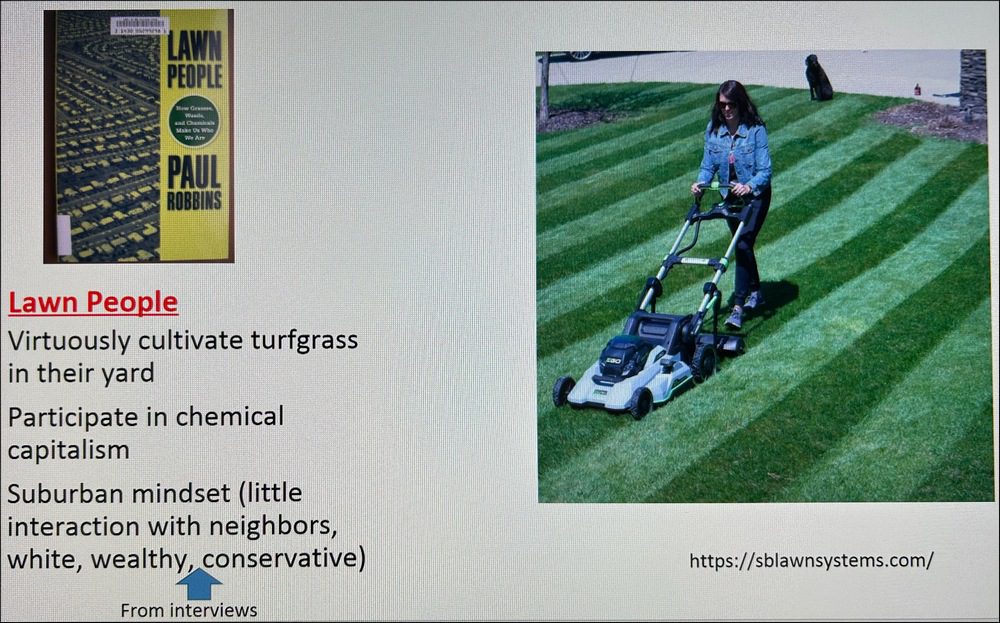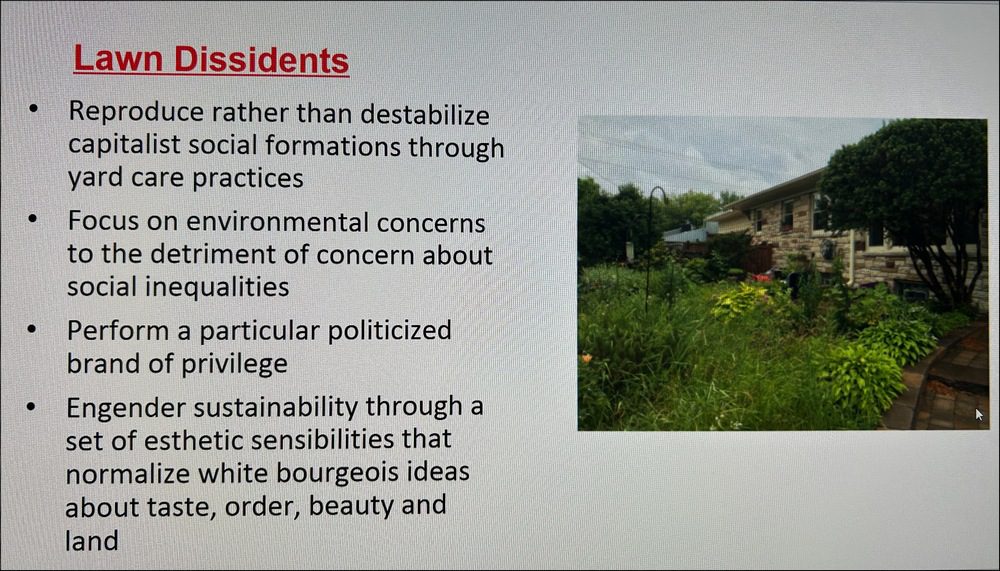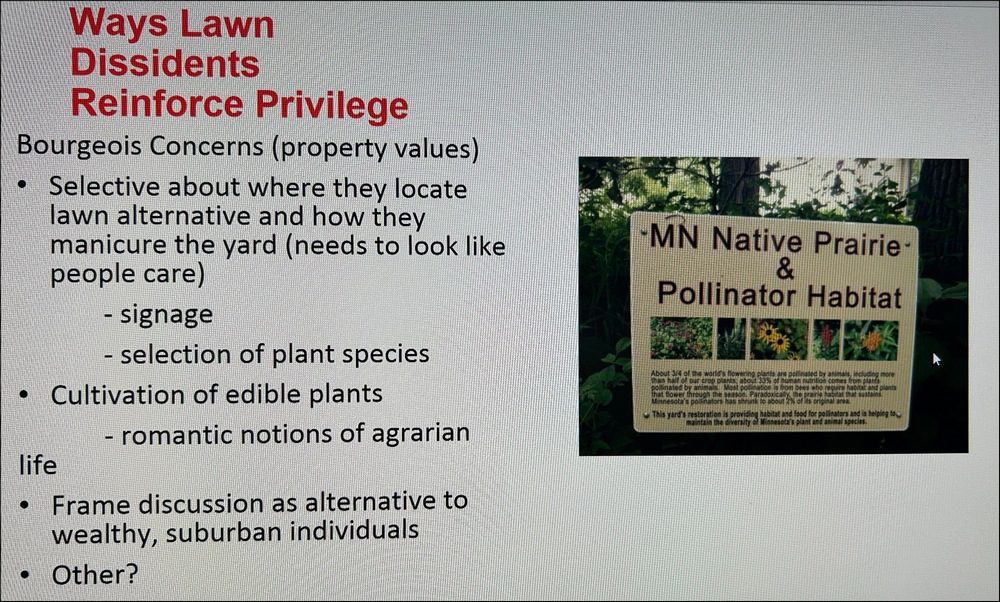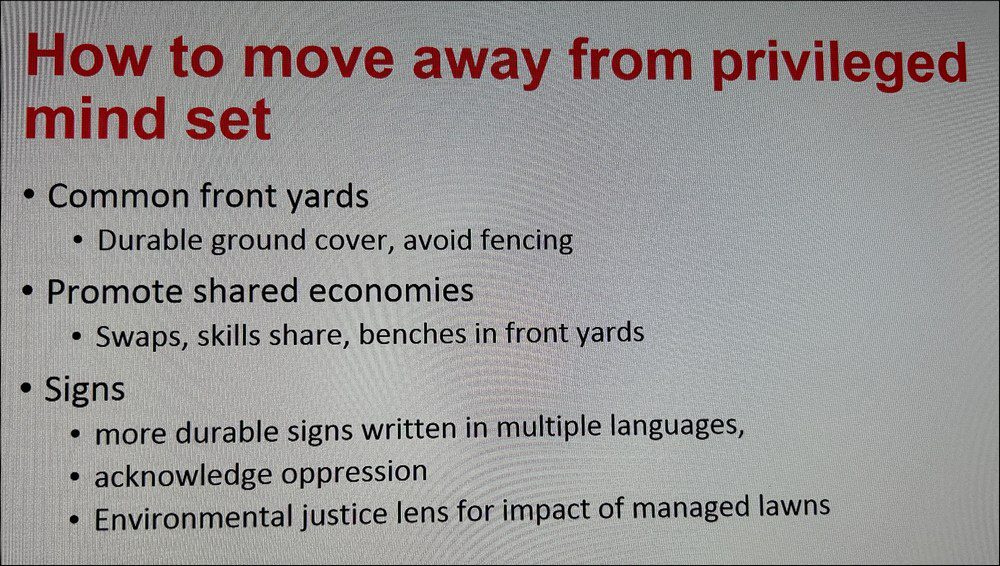
In scrolling through the course offerings at the University of Maryland, where I’ve been taking classes for several years, I came upon this one: “Lawns in the Landscape: Environmental Hero or Villain?” listed in both the Environmental Sciences and the Plant Sciences Departments. So naturally I signed up!
I’ll have more to say about the rant-rich course when it’s over but for now, one particular assigned reading was such a shock to my system, I can’t resist telling you about it. The rant writes itself!
It’s a paper by two people at Macalester College’s Department of Geography, titled “Digging in: lawn dissidents, performing sustainability, and landscapes of privilege.” Are you triggered yet? You can read it here in PDF. (But GOOD LUCK figuring out what the authors are trying to say! I was so taken back by the obtuseness of the writing, I sent it to two editor friends and they had as much trouble figuring it out as I did. But you may have better luck.)
Those terrible “lawn people”

Fortunately, the instructor summarized the authors’ points for us in some readable PowerPoints, where the sins of “lawn people” are made clear. Chemical capitalism, really? I used to have a lawn and somehow it grew with no chemicals, minimal capitalism, and without turning me into a wealthy conservative. I’ll have to confess to being white.
Those terrible “lawn dissidents”
From the paper’s Abstract:
Lawn dissidents are people who violate norms of turfgrass yards often found in North American suburbs. This paper uses qualitative methods and engages a performance view of landscape to examine how these subjects’ sustainability-oriented lawn alternatives work unintentionally to create exclusionary landscapes.
And here’s the instructor’s summary of the authors’ case against lawn dissidents, which I suppose includes me over the last 20 years that I’ve gone lawn-free. Never knew I was excluding anyone by replacing my lawn, though. Food for thought? Or a good laugh?


Soooo, having concern for one’s neighbors is an example of privilege, and for some reason habitat signs piss off the authors, too. And why is that? Some quotes:
In effect, lawn dissidents shape their yards to demonstrate a more environmentally sustainable lifestyle that is coordinated with capital accumulation and disconnected from matters of race privilege, colonization, and social memory. In important ways, use of lawn alternatives is revealed as another way to mark belonging in an eco-conscious bourgeois class coded as white…
However, as these subjects produce landscapes that perform environmentalist frames of sustainability, they also ignore concerns of social justice, which are part of a broader view of sustainability. In effect, lawn dissidents in our case study enact narratives of land as a resource for culture distinction and affect white bourgeois esthetics. Without intending to, lawn dissidents thus cultivate landscapes of privilege that perform exclusionary narratives about urban sustainability…
Lawn dissidents link their individual yards to a more generalized liberal habitus of whiteness through cultivating edible plants and consuming locally grown food…
It is especially telling that even the most radical of lawn dissidents deliberately avoided the label of heretic and went out of their way to align their green positionality with bourgeois taste.
Takes me back, waaaay back, to when I was a smug 20-year-old pondering whether the radicals on campus were right about my parents being bourgeois capitalists because they had a nice home. (Or worse, since their home was in the South, they must be…fill in the blank. To avoid suspicion myself, I quickly ditched my Southern accent.)
What to do about my “privileged mind set”?
The purported solutions for my “privileged mind set” are the hardest section of the paper to decipher, and even the professor couldn’t come up with much to fill his slide: communal yards, shared economies, and posting signs acknowledging oppression.
Sure reminds me of my turbulent college years. But back then we had REAL things to criticize and demonstrate over – civil rights, women’s rights, war, the goddamn draft! So maybe it’s the paper’s authors who are demonstrating privilege in their attacks on people for just improving their yards.
Why assign this absurd paper?
The professor, who is excellent and about whom you’ll hear more soon, revealed that UMD faculty are told by the administration to include content in their instruction about “diversity, exclusion and inclusion,” and as hard as it is to imagine those concepts popping up in a class about the science of turfgrass, he managed to find this one paper. And inflict it on us.
DEI topics have been covered in several classes I’ve taken – where they’ve made sense. In this case, well, thanks for the rant!


